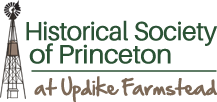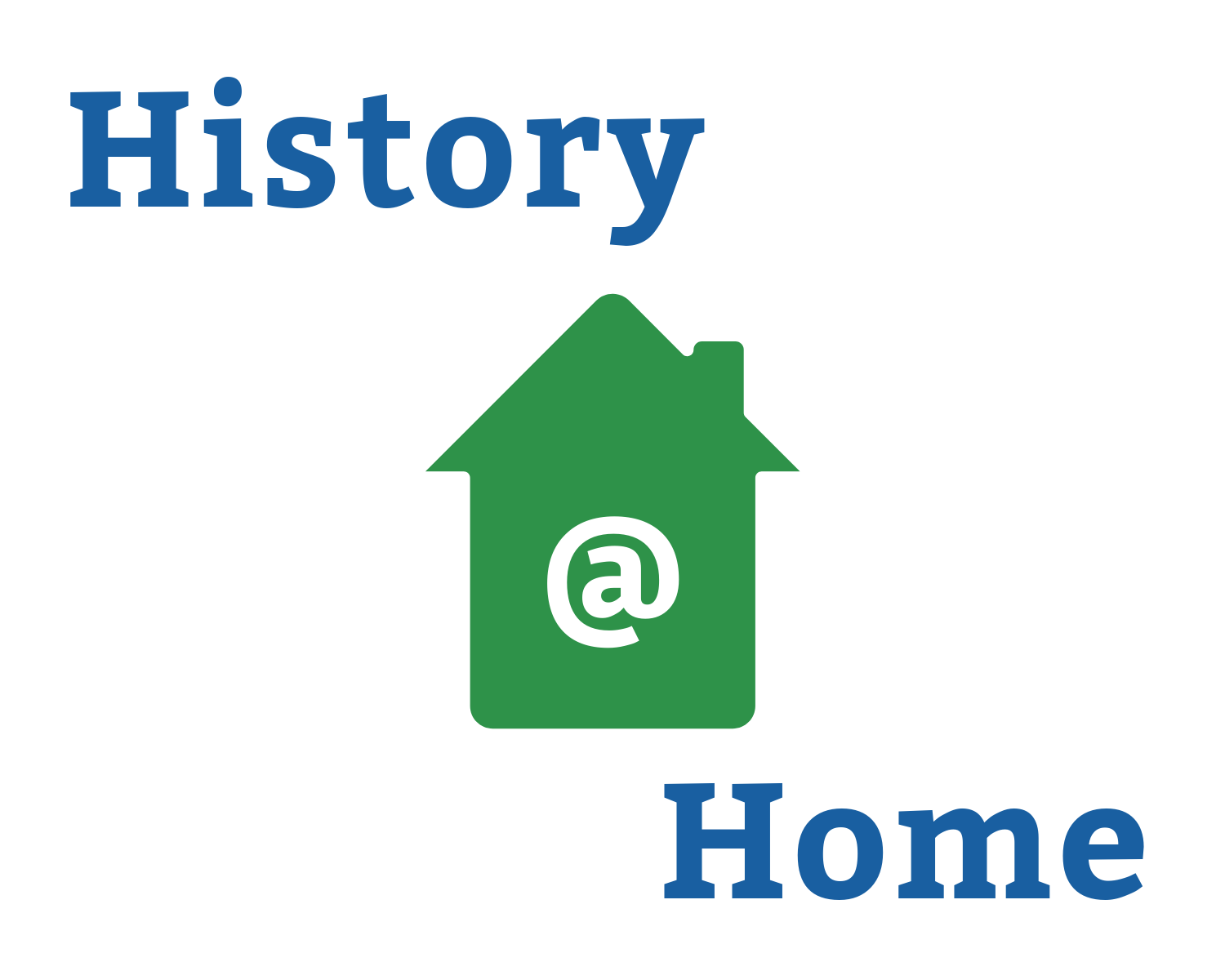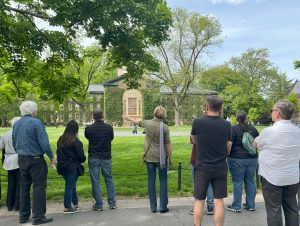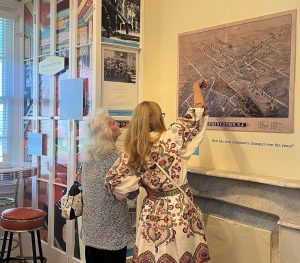Digital content for history lovers of all ages!
We’ve compiled a number of history-related activities for you to do from the comfort and safety of your own home:
Add YOUR Voice to the Historical Record
Help us capture history as it unfolds. The ongoing public health crisis is affecting the lives of people all over the world, including Princetonians. Your experience matters. Help us archive this historic pandemic’s impact in Princeton by documenting and sharing your perspectives. Your contribution will help tell the story to those in the future and aid them in understanding this challenging time. There are four ways to participate:
- Collect: Collect photographs, documents, and other materials that show how you, your family, and Princeton have been impacted by COVID-19. Send them to share@princetonhistory.org. Guidelines here.
- Document: Click here for a Google Form that asks questions to help you record your observations about the impact of COVID-19 on the Princeton community.
- Journal: Follow our prompts to help you reflect on this historic moment over time. You will have the option to add your journal to the historical record, or keep it for yourself. You can write on paper, keep a vlog, record voice memos, save your Instagram stories — a journal can take many forms! Experts say journaling can help us all cope with feelings of anxiety and loneliness during this time, and it’s how people have documented their thoughts for centuries. Guidelines here.
- Record: Record an audio or video oral history of the COVID-19 pandemic for the Voices of Princeton project. Guidelines here.
Engage with Us on Social Media
We post interesting items from our collection and exciting history stories on our social media accounts regularly. Make sure you’re following us:
Recorded Virtual Events
Man From the Future Book Launch
John von Neumann was one of the most influential scientists who ever lived. He is also possibly the most overlooked. The Historical Society of Princeton and the Institute for Advanced Study hosted a virtual book launch for “The Man from the Future: The Visionary Life of John von Neumann.” In a 30-minute talk, author Ananyo Bhattacharya gallops through some of von Neumann’s incredible mathematical ideas, demonstrating why his legacy is omnipresent in our lives today. He is introduced by Marina von Neumann Whitman, who shares her personal insights into her father and the new biography. Click here to watch the recorded event on YouTube.
2022 Annual Meeting and Lewis B. Cuyler Lecture: 19th Century New Jersey Photographers: Princeton
Of the approximately 3,000 photographers active in New Jersey before 1900, more than 250 lived or worked in Mercer County. Gary D. Saretzky, an archivist for more than 50 years, will present an illustrated talk profiling some of these local pioneers, including R. H. Rose, founder of the three-generation firm that documented all aspects of life in Princeton. Click here to watch the recorded event on Facebook.
Women in Princeton’s History
In honor of Women’s History Month, join the Historical Society’s educators to learn the contributions of some of the diverse and influential women in Princeton’s history, including immigrants, enslaved women, working women, and community leaders. These women played key roles in the town’s development through their service to others. To request a link to watch the recorded event, please email eve@princetonhistory.org.
Author Discussion: Kate Quinn and Lauren Willig
The acclaimed historical fiction authors engage in a moderated discussion about their new books (Quinn’s “The Rose Code” and Willig’s “Band of Sisters: A Novel”) to close out Women’s History Month. Presented in partnership with the Princeton Public Library. Click here to watch the recorded event.
2021 Annual Meeting and Lewis B. Cuyler Lecture: 1920: The Year That Made the Decade Roar
One hundred years later, there is a continued fascination with “The Roaring Twenties,” the only decade in American history with a widely applied nickname. How did a surge of innovation and cultural milestones emerge out of the ashes of WWI and a pandemic? Eric Burns, author of 1920: The Year That Made the Decade Roar, will look back at that critical (and often misunderstood) time and examine how it foreshadowed the rest of the 20th century (and the early years of the 21st.) Click here to watch the recorded event on Facebook.
Author Talk: Revolutionary Princeton
In conjunction with the anniversary of the Battle of Princeton, author Larry Kidder will present a virtual talk dedicated to the experiences and contributions of Princeton residents during the American Revolution. Their stories help us better understand the importance of the town beyond the one-day battle and reveal the human consequences, costs, and benefits of the war experienced by “ordinary” people. The accounts described in the program are included in Kidder’s latest book, Revolutionary Princeton, 1774-1783: The Biography of an American Town in the Heart of a Civil War, recently published by The Knox Press. Click here to watch the recorded event on Facebook.
Exploring Princeton and Women’s Suffrage: An Exhibition Talk
Did you know that the key women’s suffrage debates in Princeton happened not in 1920 (when the 19th amendment was ratified), but five years earlier in 1915? Join Historical Society of Princeton curator Stephanie Schwartz for a detailed exploration of HSP’s new digital exhibition Princeton and Women’s Suffrage: “The Greatest Question of the Day,” which can be viewed here. This illustrated talk will peek behind-the-scenes at the exhibition research process and feature some additional tales and images about the women’s suffrage debate in Princeton that did not make the exhibition’s final cut. Click here to watch the recorded event.
Rediscovering the Lost Generation: Inside the World of Shakespeare and Company
Where did Ernest Hemingway and other members of the Lost Generation buy and borrow books? Shakespeare and Company—the bookshop and lending library founded by one-time Princeton resident Sylvia Beach in Paris in 1919. Join Princeton University Professor Joshua Kotin, Director of the Shakespeare and Company Project, a digital humanities initiative that brings the world of Shakespeare and Company to life, and Fordham University Professor Keri Walsh, editor of the The Letters of Sylvia Beach, to learn more about the Lost Generation and the books they loved. Co-presented by the Shakespeare and Company Project, Princeton Public Library, and the Historical Society of Princeton. Click here to view the recorded event.
Research Your Roots: Capturing Your Family History
Preserve your family’s current and past history by capturing their voices and images now. Use today’s readily available technology to create audio and video files to record and share anecdotes, family jokes and legends, and first-person accounts of how your family has interacted with the past century and how they see current events. Co-presented with the Princeton Public Library, this program will prepare you to collect these oral histories, offering tips for conducting interviews and eliciting detailed responses plus practical technical guidance for sharing and saving your files. Click here to view the recorded event.
Memory and the Women Suffragists of New Jersey
From 1776 to 1807, New Jersey allowed “inhabitants” with sufficient money to vote, regardless of citizenship, sex, or race. This virtual talk – held on Elizabeth Cady Stanton’s 105th birthday – will examine how historical memory of those years, when women in the state could vote, was transmitted across generations, embraced by a women’s rights movement, and incorporated into a political culture shared by the state’s suffragists. (Co-sponsored by the Princeton Public Library.) Click here to view the recorded event.
Understanding Princeton’s African American History: An Exploration Through Places
Join historian and multi-generational Witherspoon-Jackson resident, Shirley Satterfield, for a virtual presentation showcasing the 29 plaques that have been installed and will soon be installed as the Heritage Tour in the Witherspoon-Jackson neighborhood, Princeton’s 20th historic district. These plaques tell the rich history of African-American establishments in Princeton. This program was co-sponsored by the Historical Society of Princeton, the Princeton Public Library, and the Witherspoon-Jackson Historical and Cultural Society. Click here to view the recorded event.
Virtual Open Archive: Healthcare in Princeton
Did you know that the 1918 Spanish flu pandemic led to the establishment of Princeton Hospital? Join HSP curator Stephanie Schwartz for this digital exploration of documents and objects from the HSP collection that highlight the history of healthcare in Princeton, including nursing, hospitals, public health, and pandemics. Click here to view the recorded event.
Virtual Voices of Princeton: Emily Mann and Mara Isaacs in Conversation: On Wednesday, May 6, McCarter Theatre Center Artistic Director and Resident Playwright Emily Mann and her long-time friend and colleague, Tony Award-winning producer Mara Isaacs recorded a live virtual Voices of Princeton interview. In this intimate conversation, Mara and Emily reflected on the influence of Princeton on their professional lives, their experiences together at McCarter Theatre Center, and the COVID-19 crisis. Click here to view the recorded event.
Go on a Virtual Walking Tour
While our acclaimed walking tours are on hold, be sure to explore Princeton’s history with our virtual walking tours.
Hamilton’s Princeton: In honor of Disney+’s release of Hamilton: An American Musical, click here to explore the myths and the true stories of places in Princeton connected to Alexander Hamilton, George Washington, Aaron Burr Jr., and more!
Princeton’s African American History: Albert E. Hinds Memorial Tour: African-American Life in Princeton
Princeton’s 18th Century History and Architecture: “Green Oval” Tour: A Snapshot of 18th-Century Princeton
Some of Princeton’s Most Noted Historic Sites: Historic Sites
Building Princeton 2020: Take a tour of the creations from the 2020 virtual edition of Building Princeton. Teams received a photograph and story of a historic Princeton building to construct with their own LEGOs at home.
Historic and Unique Trees of Marquand Park: In 1953, the Marquand family donated 17 acres of their estate, Guernsey Hall, to the municipality of Princeton to serve as an arboretum and passive recreation park. Once part of a 30-acre farm owned by Judge Richard Stockton Field, Marquand Park is home to more than 140 different tree specimens, some dating back more than 170 years! Click here to view the Marquand Park Foundation’s Google Earth tour, highlighting historic trees from the time of Judge Field, to recent plantings of rare specimens. Click here to view the “Oak”tober tour about Marquand Park’s oak trees and the importance of oak trees in history and our everyday lives.
Jews in an Ivy League Town: The Evolution of Princeton’s Jewish Community: In collaboration with the Jewish Community Foundation of Greater Mercer, this self-guided digital walking tour exhibits notable Jewish retail business in downtown Princeton within the 20th century. This tour intends to provide a glimpse of the evolution of Princeton’s Jewish community, revealing the community’s deep roots with topics such as downtown Princeton’s local businesses, Institute for Advanced Study (IAS), Albert Einstein, The Jewish Center, RCA Laboratories, and more.
Explore a Digital Exhibition
Museums are closed, but that doesn’t mean you can’t access fascinating exhibitions.
From HSP:
-
- Women’s Suffrage: Explore how the suffrage debate played out in Princeton from 1910 to 1920 in HSP’s new digital exhibition, Princeton and Women’s Suffrage: The Greatest Question of the Day.
- Agricultural History: Spring is here, and so is planting season! Check out HSP’s digital exhibition, Garden State History Garden, in which you can explore many aspects of Princeton and New Jersey’s agricultural history.
- World War II Home Front: This panel exhibition explores how World War II affected Princeton and its neighbors, as residents engaged in civil defense, rationed their purchases, and contributed to foreign relief efforts. Click here to view the exhibition.
- School Integration: Follow the story of the racial integration of Princeton’s Public Schools, a process known as the “Princeton Plan.” The panel exhibition explores the Princeton Plan’s local impact and national reverberations. Click here to view the exhibition.
From The President Woodrow Wilson House: Did you miss The Art of First Lady Ellen Axson Wilson: American Impressionist when it was on view at Updike Farmstead in 2012? This show is now available digitally, featuring landscape paintings by the first Mrs. Wilson that span the years 1902-1913, including her time living in Princeton. The exhibition was curated by the Woodrow Wilson House, Washington, DC. Click here to access it online.
From Rutgers’ NJ Digital Highway: Click here to check out NJ history digital exhibitions developed by Rutgers University students and faculty.
Women’s History: In honor of the centennial of the 19th amendment granting women the right to vote, explore these digital exhibitions:
-
- Click here for the Old Barracks Museum’s digital exhibition about New Jersey’s anti-suffrage movement.
- Click here to discover some of the artifacts and stories in the Museum of the American Revolution’s upcoming exhibition When Women Lost the Vote about New Jersey’s women voters from 1776-1807.
- Click here for the National Archives’ Rightfully Hers digital exhibition content.
- Click here for the Smithsonian National Museum of American History’s Creating Icons: How We Remember Woman Suffrage digital exhibition content.
Browse Digital Collections
Explore digitized photographs, documents, newspapers, and other historical material illuminating Princeton’s history on these websites:
Click here for the Historical Society of Princeton’s Digital Database.
Click here to search and read digitized local newspapers from 1842 onward.
Click here to explore essays and primary sources about the history of slavery at Princeton University and in town.
Participate in Transcription Initiatives
Transcription of historical materials is an important part of enhancing access to history, and many institutions rely on volunteers to transcribe documents from their own homes. Spend some of your time at home getting involved in these transcription initiatives:
Click here to get involved in transcribing materials in the Smithsonian Institution’s collections.
Click here to become a Citizen Archivist at the National Archives, helping them tag, transcribe, and add comments to their records.
Click here to help the New York Public Library transcribe and review historic restaurant menus in their collection.
Watch History Videos
Tired of Netflix? Check out these local and NJ-history-related videos:
It Happened Here: New Jersey: This NY-Emmy nominated series captures short narratives about New Jersey’s remarkable history. Click here for the full playlist, or check out these Princeton-specific stories:
Princeton Plan: Fifty Years Later: This short documentary tells the story of school integration in Princeton, a process that was nationally recognized and dubbed the “Princeton Plan.” Click here to watch.
Women’s Suffrage Lectures by Carol Simon Levin:
-
- Pickets & Persistence: War Service & Woman Suffrage: Levin portrays Jeannette Rankin, America’s first female member of Congress, telling the intertwined stories of women’s suffrage activism, war service, and the political calculus that finally brought about the passage of the 19th amendment.
- Reclaiming Our Voice: New Jersey’s Central Role in the Fight for Woman Suffrage: Levin portrays Lillian Feickert, the president of the NJ Woman Suffrage Association from 1912-1920, to discuss NJ’s role in the long difficult struggle for woman suffrage.
NJ State Museum: Fine Feathered Friends: Birds as Mainstay and Muse
Short videos related to the Museum’s current exhibition that tells stories of NJ history … through birds! The video, “Why is Our State Bird Our State Bird,” talks about a Princeton University alum, John Dryden Kuser, the state senator who gave NJ its state bird. Click here for the full list of videos.
Stoutsburg Sourland African American Museum
This eight- minute video provides insight into the role of the Museum in increasing understanding and facilitating the healing process in Central NJ’s Sourland Mountain community – especially relevant during this critical time in our nation’s history. Click here to watch.
Professional Development Opportunities in Holocaust Education
HSP’s Holocaust Education provider, Echoes and Reflections, offers a variety of webinars and online courses. Programs are designed to increase participants’ knowledge of Holocaust history, explore and access classroom-ready content, and support instructional practice to promote student learning and understanding of this complex history and its effect on the world. Click here for Echoes and Reflections’ upcoming webinars, or click here for a list of upcoming three-part online courses.
Incorporate Local History Projects Into Your Remote Learning
Are you a parent/caregiver or student doing remote learning from home? Here are hands-on projects that you can do at home together to explore Princeton history. Each one features real historical photographs and documents!
Communication History: Discover Princeton’s old telegraph office, learn how to communicate in Morse code, and tap out a message about an event in Princeton’s history. Click here for instructions and historic photographs.
Town Development History: Did you know that over 200 houses were moved in Princeton to make way for new buildings? Build a house and try to find household items that will help you move it across a room – without it falling down! Click here for instructions and historic photographs.
World War II Home Front History: Learn about rationing in Princeton during World War II and explore historical documents that show the experiences of Princetonians on the home front.
Grades K-12: Click here for an activity about cooking with ration stamps.
Grades 3-10: Click here for an activity about shopping with ration stamps.
We’ll be adding more remote learning projects soon – watch this space!
Games and Puzzles
Each of these digital jigsaw puzzles is made out of a photograph from our collection of over 30,000 historic images of Princeton. Several of the images below were taken by the family-owned photography studio Rose & Son, which visually documented Princeton for over 80 years.
Exercise your brain, learn about Princeton history, and engage in some friendly competition – post your puzzle completion time on our social media!
For adults:
99

Holder Tower was built in 1909-1910, designed by the Philadelphia architectural firm, Day and Klauder. The elaborate, Victorian-style University Hotel was demolished only three years after this photograph was taken. Before demolition, the hotel served as a Princeton University student dining hall. You can see an image of the entire building here. Rose Studio.
150

Upper Pyne was the “twin” building to Lower Pyne, better known today as the home of Hamilton Jewelers. Moses Taylor Pyne built Upper and Lower Pyne for Princeton University in 1896. His favorite architect, Raleigh C. Gildersleeve, designed both buildings. Initially, the buildings housed shops at the street level and undergraduate dormitories upstairs. Upper Pyne was destroyed in 1963. The PNC Bank building on Nassau Street stands in its place today. Rose Studio.
For kids:
35

Princeton Station, otherwise known as the “Dinky Station” has moved several times. Here it is in its first location, at the foot of Blair Arch on the Princeton University campus. The locomotive pictured is the “Princeton Special,” a train that ran directly to New York City, without requiring a transfer at Princeton Junction. Rose Studio.
60

Pictured here is Helen Hamilton Stockton, a resident of Morven, with her great dane, Viking. Viking was mysteriously poisoned in 1910.




